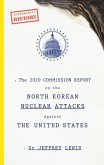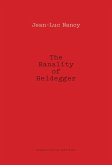On December 24, 1940 the Bulgarian parliament adopted The Act on Protecting the Nation which introduced discrimination against the Jewish residents and deprived them of major rights, based on the Nuremberg race laws. In debates on the law, the first to oppose Bulgaria's official Jewish policy was the synod of the Bulgarian Orthodox Church, which issued a resolution of condemnation.
Target date for the first Bulgarian transports was set at March 10-11, 1943. In parallel, the deportation of the Jews in Macedonia and Thrace was begun. When this became apparent in Bulgaria, the Jewish community of Bulgaria and the portion of Bulgarian public opinion that opposed the deportation sounded the alarm.
On March 9, Tsar Boris III postponed the deportations. But the threat had not disappeared. Not everyone received the postponement order. In Plovdiv several hundred Jews were collected for deportation on the morning of March 10. Plovdiv Metropolitan (Bishop) Kirill immediately telegraphed the Tsar asking for mercy. Then he went to the collection site, joined the Jews who were there and announced that he was going with them. Officials of the Orthodox Church in Sliven, Shumen, Pazardzhik, Haskovo and Samokov protested in much the same way. Finally, the postponement command reached everyone by noon.
Bulgarian society has proved its viability in surviving 500 years of Ottoman domination and still being able to establish a state. But, despite the ups and downs of its history, one cannot say that it has deep-rooted middle class traditions or has built a lengthy democratic order of values, when compared to either Western or Central Europe. Nevertheless, this society was able to pull together and produce a unique outcome during the Holocaust era.
Doncsev's study is focused on the issues behind that unique outcome and he attempts to explore them and get answers. In addition, he is very conscious of his Bulgarian ethnicity but has lived in Hungary his entire life. Therefore, he is very well acquainted with Bulgaria and its people but has the ability to step back and see them objectively, from the outside. Additionally, he is thoroughly acquainted with the tragedy of the Hungarian Holocaust, so he knows where to focus his attention. This is why I believe this study is both credible and fills a historical gap.
András Klein
Hungary's Ambassador to Sofia
Dieser Download kann aus rechtlichen Gründen nur mit Rechnungsadresse in A, B, BG, CY, CZ, D, DK, EW, E, FIN, F, GR, H, IRL, I, LT, L, LR, M, NL, PL, P, R, S, SLO, SK ausgeliefert werden.









